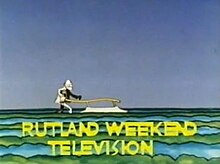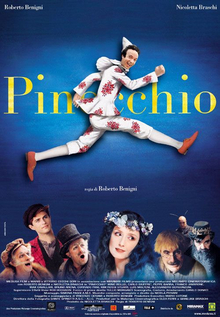
To start inventing you need something real first. Grenoble, France. In an isolated mountain chalet novelist Sandra Voyter (Sandra Huller) decides to reschedule her interview with a female literature student Zoe Solidor (Camille Rutherford) because her husband, university lecturer and aspiring author Samuel Maleski (Samuel Theis) plays music loudly on a loop in their attic, disrupting the interview, making recording impossible. After the student drives away from the chalet, Samuel and Sandra’s visually impaired son, Daniel (Milo Machado-Graner) takes a walk outside with his guide dog Snoop (Messi). When they return home, Daniel finds Samuel dead in the snow from an apparent fall. Sandra insists that the fall must have been accidental. Her old friend and lawyer Vincent Renzi (Swann Arlaud) suggests the possibility of suicide while Sandra recalls her husband’s attempt to overdose on aspirin six months earlier after going off antidepressants. After an investigation, Daniel’s conflicting accounts of what happened shortly before his father’s death, combined with the revelation that Samuel sustained a head wound before his body hit the ground and an audio recording of a fight by Samuel and Sandra the previous day, Sandra is indicted on charges of homicide. A year later, during the trial, Sandra’s defence team claims Samuel fell from the attic window and hit his head on a shed below; the prosecution suggests that Sandra hit him with a blunt object, pushing him from the second-floor balcony. During a courtroom argument with Samuel’s psychiatrist Jammal (Wajdi Mouawad) Sandra admits she resented Samuel due to his partial responsibility for the accident that led to Daniel’s impaired vision: he should have collected him from school but called a babysitter instead so he could stay home and writer. In the recorded fight, Samuel accuses Sandra of plagiarism, infidelity and exerting control over his life before their argument turns physically violent. The prosecution claims that all the violence came from Sandra but she points out that they’d been having conversations and disagreements that he’d recorded for six months as a substitute for writing and his transcriptions when presented by him were not accepted by a publisher in lieu of a novel … I don’t believe in the the notion of reciprocity in a couple. Written by the married couple Justine Triet & Arthur Harari (who appears as a literary critic) during the COVID lockdown, director Triet’s film sustains its mysterious premise right until the conclusion which may prove disappointing – perhaps a European take on the customary bittersweet Hollywood ending. it’s a Choose Your Own iteration of the murder procedural with flashes of Hitchcockian wit throughout. There is a re-enactment and a single flashback but the eccentric courtroom presentation is very different to the Anglo-Saxon convention with witnesses for the prosecution and defence talking over each other, a low threshold for evidence and an equally bizarre concept of the burden of proof (opinion-led, apparently). Sandra’s bisexuality and her affairs are brought up as a reason for her husband’s violent arguments with her, his use of anti-depressants rooted perhaps at her contempt for him when their young son was blinded because he should have been picking up from school, her relentless output still not sufficient to pay the bills while he is at home, renovating, homeschooling Daniel, having no time to write outside of his teaching job. At the heart of the story is a blame game between husband and wife – an accident that caused Daniel’s sight loss and a burning envy of a wife’s success whose latest plot is largely ‘borrowed’ from a passage in a novel Samuel abandoned, a writer wannabe now reduced to transcribing daily home life as a form of autofiction. As the USB recording from Samuel’s keyring is re-enacted he accuses Sandra of stealing his time and ‘imposing’ her worldview upon him despite his having forced the family to relocate to his hometown where she speaks English and the use of language becomes an issue in this French-German union where nuance, suggestion and meaning are potentially lost in translation – English is the no-man’s land resort of communication. Sometimes a couple is a kind of a chaos. The discursiveness masks the fact that it is their blind son and his dog who are the sole witnesses to the accident, spicing up the issue of court appearances and compounding the ambiguous nature of the crime and the lack of compelling evidence. Triet and Harari wrote this with Huller in mind (following an earlier collaboration) and she is a very modern heroine, word-smart, intellectually able, psychologically penetrating and completely at ease with herself to the point of lying easily. She is superb as this take no prisoners character, taking nonsense from nobody and while profoundly concerned with her son’s well-being she also boasts a terrifically charismatic nonchalance. Nevertheless, she is obviously unnerved by the courtroom experience in a language not her own. A sidebar to the exposition is the frank admission by Vincent that he has long thought highly of her. This is of course about writers and what happens when one half of a couple is more accomplished and successful than the other and how envy can eat like a cancer through a relationship. Samuel is destroyed by what he has done to his son, Sandra has dealt with it through adultery while also cheerfully churning out novels and doing translations on the side. She is pragmatic above all. Does Samuel commit suicide and are the recordings made in order to frame Sandra for his alleged murder? Maybe. Did he fall or was he pushed? Is the flashback from the visually impaired son true? Does Daniel lie? Why did he make a mistake in his first account? Rage does not exclude will! Guilt, jealousy, blame, language, meaning, all suffuse this tension-filled narrative which asks questions about how writers make their work and how much it plunders their private lives. How and why the story turns unexpectedly marks out the forensic narrative style. Rightly lauded, the exceptional screenplay was awarded at the Golden Globes, the BAFTAs and the Academy Awards among others and the film won Cannes’ Palme d’Or with the Palm Dog going to Messi! The first 9 minutes of the film are dominated by that appalling music which frankly would drive anyone to murder, if you want to know the truth. We won’t even name it such is its earworm potential for homicidal triggering. Gripping. A novel is not life! An author is not her characters! #700daysstraightofmondomovies! MM#4547
















































